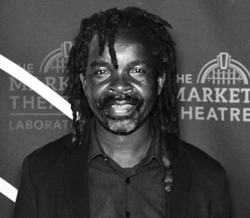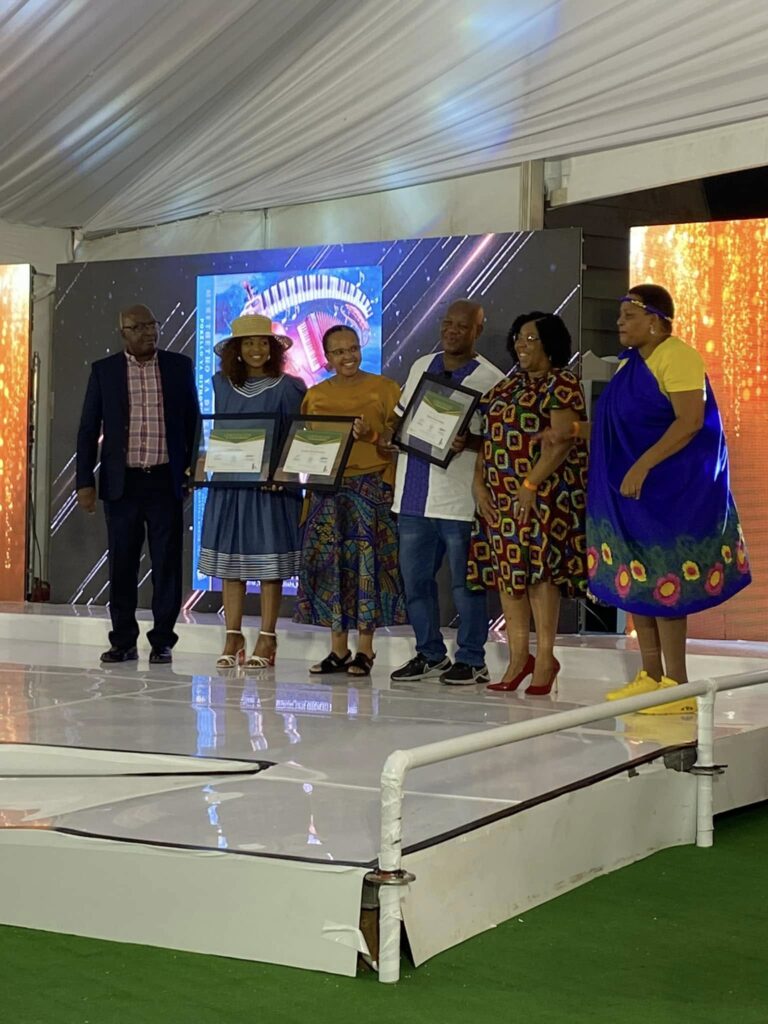Launch of new books by Department of Sport, Arts and Culture’s newly established Publishing Hub a good thing
A good initiative but government must exercise a hands-off approach to the initiative, leaving the sector to wholly run and own the initiative.
By Edward Tsumele, CITYLIFE/ARTS Editor

I am often a critic at worst and cynical at best about the Department of Sport, Arts and Culture, and its 28 entities about how they fund and interact with the creative and cultural sector for over two decades. And rightly so as we all know that where there is money, in this case over R billion allocated annually for the development and promotion of arts and culture, there is bound to be shenanigans. Someone somewhere in these entities is bound to be found with their finger in the till where it is not supposed to be.
Talk about greed and it is everywhere in government departments in general. DSAC and its entities is not immune to the rampant corruption embedded in several government departments. It is a pity that this cancer runs through a lot of the 28 entities and DSCA itself because the reason why DSAC and its 28 entities exist is to make show that the funding environment for the arts is healthy and consequently artistic output should flourish. Ther reverse is unfortunately the reality in some of the entities and DSAC itself because of greed by some officials who hold the purse strings.
And so, when I was first invited to witness the Publishing Hub, now a directorate within DSAC, last year at Ditsong Museum in Pretoria, I was rightly cynical. That is where DSAC’s Publishing Hub unveiled their first books published mainly by independent publishers, some of whom were said to be on the verge of closing shop, I went there with immense pain in my min. One because whenever a government department takes over what a sector is supposed to do, such as publishing, of course using public funds, instead of the sector itself, there is created a problematic situation.
Government departments are supposed to be enablers for different sectors in society to operate and flourish and not an active participant. That is why for example, the Creative and Cultural Industries awards that were launched controversially last year when Zizi Kodwa was a Minister of Sport, Arts and Culture are bound to fail and their future now with the current minister Gayton Mckenzie uncertain. This is because instead of the award ceremony championed by the sector and promoted and in a way owned by the sector, they became DSAC’s awards. That is not the right way. The sector should own and run its affairs with government coming in as facilitators and not the organisers for such sector events. In other words, government must just fund and stand back and let the sector choose whom they want to reward and not reward. The sector is wellplaced to do that.
Unfortunately when I was invited to this year’s second launch of the Publishing Hub of DSAC where they unveiled this year’s publishing companies they funded under this directorate and the books that they have published under the auspices of the Publishing Hub, I had similar misgivings just as I had last year.

And do not get me wrong. The initiative and intervention, is a good one by DSAC as the publishing sector needs desperately such intervention. For example, it is mind boggling that in a country whose population stands at over 60 million, a bester seller in fiction is between 3000 and 6000. This is pathetic which ever way you look at it. Therefore, there is a need for DSAC to stimulate us to read more. And one of the ways that DSAC has identified is for the sector to start publishing in languages that the majority of the population identifies with, such as indigenous languages, including the Khoi and San languages groups and Sign Language. This is a matter of the Constitution by the way. There is no choice there. And at the launch on Tuesday, it was commendable that DDAC unveiled a book written in some of the major dialects within the San and Khoi language group, with the assistance of other role players such as the Pan South African Language Board among others.
Unfortunately, from where I am standing and how I observed the ceremony, instead of DSAC taking a hands-off approach and leaving the whole thing in the nads of the sector in general and sector as represented by its implementingpartner, the much-respected DSAC was all over the show, making the ceremony and the launch look like a government event, and not a sector event, as it should be.
At such an event DSAC must rightly be the guest of honour as a funder invited to the table of honour by the implementing partner and not look like they are the ones running the show. The show must rightly belong to the sector and that way, the books that are published under this initiative will in the eyes of a critical reader, look and feel like literature as it should be, and not some sort of propaganda by government. Unfortunately, as this initiative feels and looks like currently, it is almost like one was attending a government propaganda conference, which in essence was not this case and is not intended to look and feel like that way. That I am quite sure.
My humble advice would be, let the sector honour and run the initiative with government only restricting itself to funding the whole thing.
Anyway, on November 26, 2024, the Department of Sport, Arts and Culture’s (DSAC) DSAC Publishing Hub issued the following statement:
“Administered by the Academic and Non-Fiction Authors’ Association of South Africa (ANFASA), announced the 2024/25 successful manuscripts. This initiative is a testament to the department’s commitment to fostering a vibrant literary landscape in South Africa.
” This groundbreaking program represents more than just publishing books – it’s about reclaiming our narrative and investing in South Africa’s intellectual capital,” declares Minister of Arts Culture, Sport and Heritage, Gayton Mckenzie. “With a record-breaking 395 manuscripts submitted across all 11 official languages, we’re witnessing a renaissance in South African literature
Breaking New Ground The initiative has shattered previous records with:
• A 200% increase in indigenous language submissions compared to last year
• First-ever simultaneous publication in all 11 official languages
• Pioneering digital-first publishing strategy ensuring global accessibility
• Creation of 150 new jobs in the publishing sector
Historic Preservation of Heritage Languages In a groundbreaking development, two Khoi and San children’s books were published, representing the first commercial publication in these languages in over a decade. This vital step in language preservation includes innovative augmented reality components allowing readers to hear native speakers.
The initiative has seen over 395 manuscripts submitted across all 11 official languages, showcasing the diverse voices and stories waiting to be shared.
A Celebration of Diverse Voices
The rigorous selection process resulted in the selection of 26 compelling works spanning a range of genres, including novels, non-fiction, poetry, children’s literature, and drama. Notably, two Khoi and San children’s books were published, a significant step towards preserving and promoting these endangered languages. Thirty-eight authors, twenty-eight language experts, and ten publishing houses have benefitted directly from this initiative, fostering collaboration and growth within the industry.”
DSAC Publishing Hub – Announcement of successful manuscripts.
11 November 2024
The DSAC Publishing Hub launched in July 2023, is an initiative of the Department of Sport, Arts and Culture (DSAC) administered by the Academic and Non-Fiction Authors Association of South Africa (ANFASA).
This is an industry stimulus project to support authors and revitalise the publishing industry. It also aims to encourage the creation of new literature by telling our stories in order to preserve our heritage. The twenty-six set of work produced in this financial year, 2024/25 includes twenty-two (22) physical books, two (2) audiobooks and three (3) books converted to braille. Two Khoi and San children’s books written in Khwedam, !Xuhnthali and Nama will be published in collaboration with PANSALB, as part of the twenty two physical books.
Over three hundred and ninety-five (395) manuscripts written in all official South African Languages were submitted for selection.
Thirty-eight (38) authors, twenty-eight (28) language experts and ten (10) publishing entities directly benefited from this initiative. The selected manuscripts are currently in the production and publishing process.










